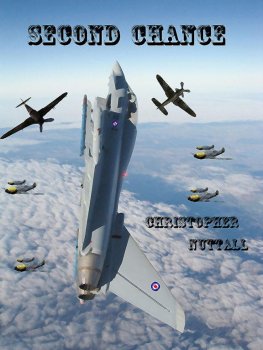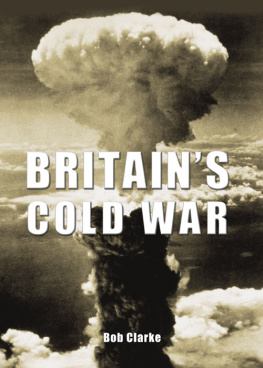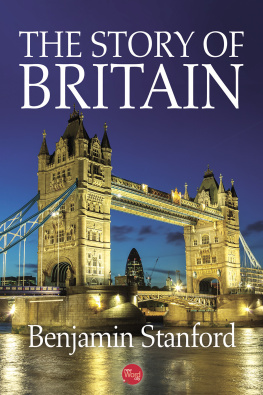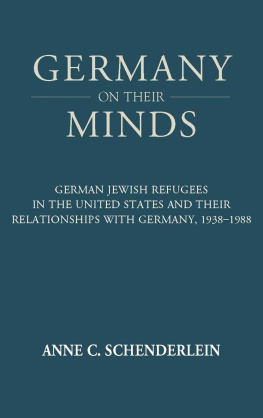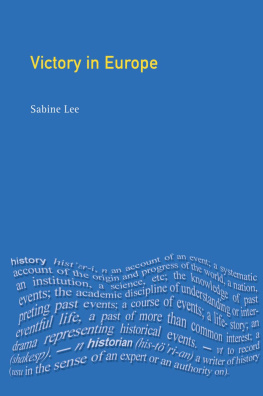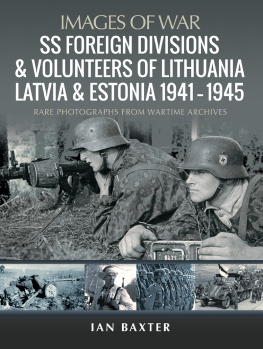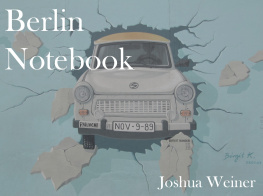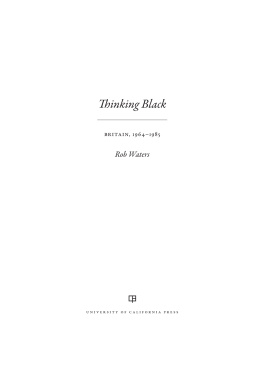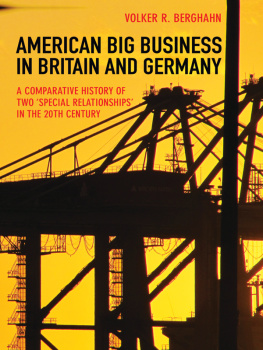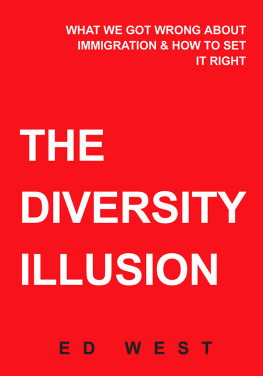Rebuilding Post-War Britain
For Latvians, Lithuanians and Estonians all over the world
Rebuilding Post-War Britain
Latvian, Lithuanian and Estonian refugees in Britain, 194651
EMILY GILBERT
First published in Great Britain in 2017 by
Pen & Sword History
an imprint of
Pen & Sword Books Ltd
47 Church Street
Barnsley
South Yorkshire
S70 2AS
Copyright Emily Gilbert, 2017
ISBN 978 1 47386 057 5
eISBN 978 1 47386 059 9
Mobi ISBN 978 1 47386 058 2
The right of Emily Gilbert to be identified as Author of this work has been asserted by her in accordance with the Copyright, Designs and Patents Act 1988.
A CIP catalogue record for this book is available from the British Library.
All rights reserved. No part of this book may be reproduced or transmitted in any form or by any means, electronic or mechanical including photocopying, recording or by any information storage and retrieval system, without permission from the Publisher in writing.
Pen & Sword Books Ltd incorporates the Imprints of Pen & Sword Books Archaeology, Atlas, Aviation, Battleground, Discovery, Family History, History, Maritime, Military, Naval, Politics, Railways, Select, Transport, True Crime, Fiction, Frontline Books, Leo Cooper, Praetorian Press, Seaforth Publishing, Wharncliffe and White Owl.
For a complete list of Pen & Sword titles please contact
PEN & SWORD BOOKS LIMITED
47 Church Street, Barnsley, South Yorkshire, S70 2AS, England
E-mail:
Acknowledgements
Thank you to Pen and Sword Publishers for seeing the potential in this book, particularly Eloise Hansen, Carol Trow and Heather Williams who provided excellent advice and support throughout the project.
I would also like to thank all the Latvians, Lithuanians and Estonians in Britain, and across the globe, who helped with this book. I am particularly grateful to everyone at the Latvian clubs in Leeds and Nottingham, the Lithuanian clubs in Manchester and Nottingham, and the Estonian club in Bradford. I would like to thank all the original questionnaire and interview participants and their families, and all those who generously contributed a range of community documents, including rare books, personal memoirs, newspapers and journals, which formed extremely useful source materials for this study. I am particularly grateful to Heino Poopuu for allowing me to use his fascinating unpublished memoir Remembering Pussa about his childhood on the Estonian island of Saaremaa which forms the backbone for ( A Wonderful Life: Growing up in the Interwar Homelands ). Vida Gasperas provided multiple contacts and links for the project and arranged a visit to idinys in Nottingham. Inese Auzia-Smita (Smith) was very helpful and took me on a tour around the Latvian retirement home Straumni , including the amazing library housed there. Vladas Dargis arranged accommodation in Vilnius and Bruno Rullis and Jnis mits from Leeds were extremely helpful in so many ways, as were many other individuals and their families. There are too many to list individually here; some of them have sadly passed away, while others have wished to remain anonymous.
I am also extremely grateful to the many second generation Latvians, Lithuanians and Estonians who have supported this project in recent years. I am indebted to Alexandra Mzers who has enthusiastically shared her experiences as a second generation Latvian in Britain, and allowed me to use treasured family photographs on the cover of the book.
I would like to thank Anita Woronycz, a second generation Lithuanian, who has been an amazing proof-reader of this book, and provided useful comments and feedback. Anitas help in the final stages of the book was invaluable and I could not have finished it without her. Any mistakes are, however, my own! I am very grateful to Susanna Brazauskas who has also shared family photographs used on the spine of this book and also to Astrid Radze-Constable and her two sisters, Martina and Anne-Marie, who have shared stories and enthusiasm for the project.
Karen Mitchell kindly shared the amazing story of her Lithuanian grandparents, which forms the start of the Prologue A Brief History of Latvians, Lithuanians and Estonians in Britain before the Second World War . Irene Adickas, Glynis Harrison, Angela Wall, Pauline Szelewski, Sarah Dauksta and Andrew Rimaitis all shared family histories and/or photographs used in this book an Paul Lucas provided useful information about Scottish Lithuanians. I would also like to thank Luke Mzers, Mark Mzers, Reet Jrvik, and the many others who have helped in so many ways with this project, but who I am unable to name individually due to lack of space.
I would like to thank my PhD supervisor, Professor Colin Holmes, who provided the initial idea for the research and oversaw its completion with support and enthusiasm. Colin has also continued to provide moral and practical support throughout this project. Thank you to the Department of History at the University of Sheffield, where the original research was undertaken and the Economic and Social Research Council, which funded the research.
Last but not least, a big thank you to John, my partner, who has supported me throughout and my sons, Isaac and Seth, as well as my wider family and friends who have been very supportive and kept me on an even keel.
Emily Gilbert 2017
Introduction
Some carried all their belongings in a grey army blanket; others wore fur coats and smart hats.
( News Chronicle , reporting on the arrival of eighty-seven Baltic women in Britain, 22 October 1946)
Between 1946 and 1950, twenty-five thousand Latvian, Lithuania and Estonian men, women and children arrived on Britains eastern shores via the ports of Hull, Tilbury and Harwich. They travelled on cruise liners and British Navy ships, and disembarked with a mix of excitement and trepidation at their new lives ahead. This was the final stage of long and arduous displacement journeys, which had begun years earlier at the start of the Second World War, with the occupation of their homelands by Soviet Russia and Nazi Germany.
Many of the newcomers arrived via the Port of Hull, sailing down the River Humber before docking at Hulls historic docks, long used as a transit point for European migrants. Often arriving in the morning after a night-time crossing, their view of Hull was a very different scene to the vistas of the pre-war, often rural, landscapes of their homelands. Early morning sea mists lifted from the brown muddy waters of the Humber estuary, to reveal a war-ravaged scene. Collapsed shells of buildings lined the shore and smoke rose from chimneys standing tall on the skyline. The grey-brown palette submerged all colour and was a stark contrast to the lush green fields and natural panoramas of home. However, the refugees had seen worse in Germany, and were grateful finally to be given the opportunity to start a new life in a safe country.
Having accepted work placements on the European Volunteer Workers schemes, the arriving refugees would be working in a variety of jobs in Britains undermanned industries, and their dependents who arrived later, would have the chance to recreate some semblance of family life in a new country. Representatives from the Womens Royal Voluntary Service greeted the new arrivals and chatted to them about the next stage of their journeys while they drank mugs of tea. One Latvian EVW noted that he was given fish and chips after arriving at Hull, which made him feel very sick after years of meagre rations. From the ports, they boarded buses and trains to the hostels and camps, where they would be registered and settled into their temporary accommodation, until they were assigned work and longer term accommodation.


